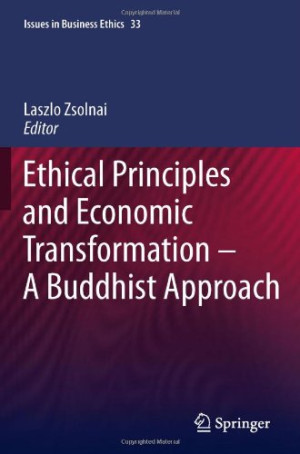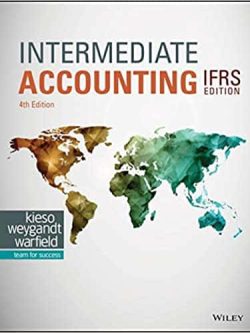Specifications
| book-author | Laszlo Zsolnai (auth.) ; Laszlo Zsolnai (eds.) |
|---|---|
| file-type | |
| isbn10 | 9048193095 |
| isbn13 | 9789048193097 |
| language | English |
| publisher | Springer Netherlands |
Book Description
“Ethical Principles and Economic Transformation: A Buddhist Approach, 1st Edition” edited by Laszlo Zsolnai delves into the intersection of ethics and economics through the lens of Buddhist philosophy. Here's an overview of what this edition entails:
- Introduction to Buddhist Economics: The book begins by introducing readers to the fundamental concepts of Buddhist economics. It explores the ethical principles that underpin Buddhist thought, including compassion, interconnectedness, and non-attachment. It discusses how these principles can inform economic theory and practice, offering alternative perspectives on wealth, happiness, and human flourishing.
- Ethical Critique of Conventional Economics: Zsolnai and other contributors offer a critical examination of mainstream economic theories and models from a Buddhist perspective. They critique notions of unlimited growth, materialism, and consumerism, arguing that these concepts are incompatible with Buddhist values of simplicity, contentment, and mindfulness. They explore the ethical implications of market-based economies and advocate for more holistic approaches to economic development.
- Buddhist Ethics in Business and Finance: The text explores the application of Buddhist ethics in the realm of business and finance. It discusses ethical dilemmas faced by corporations, investors, and financial institutions, such as environmental degradation, labor exploitation, and wealth inequality. It examines how Buddhist principles of ethical conduct, honesty, and social responsibility can guide decision-making in business contexts, promoting sustainable and equitable outcomes.
- Sustainable Development and Social Justice: Zsolnai and contributors examine the concept of sustainable development from a Buddhist perspective. They explore the interconnectedness of environmental, social, and economic systems, advocating for approaches that prioritize environmental stewardship, social equity, and community well-being. They discuss strategies for achieving sustainable development goals while honoring Buddhist principles of compassion, generosity, and non-violence.
- Mindfulness and Well-Being: The book explores the role of mindfulness and contemplative practices in promoting individual and collective well-being. It discusses how Buddhist mindfulness techniques can enhance self-awareness, emotional resilience, and ethical decision-making in economic contexts. It also explores the potential benefits of integrating mindfulness into workplace environments to reduce stress, enhance creativity, and foster a culture of compassion and collaboration.
- Case Studies and Practical Applications: Throughout the text, readers will find case studies, examples, and practical applications of Buddhist ethics in economic transformation. These examples illustrate how Buddhist principles are applied in real-world contexts, from sustainable business practices and ethical investing to social entrepreneurship and community development projects. They offer insights into the challenges and opportunities of integrating Buddhist ethics into contemporary economic systems.
- Interdisciplinary Perspectives: “Ethical Principles and Economic Transformation: A Buddhist Approach” brings together contributions from scholars and practitioners across disciplines, including economics, philosophy, psychology, and environmental studies. This interdisciplinary approach enriches the dialogue on ethics and economics, fostering a deeper understanding of the complex interplay between values, beliefs, and economic behavior.
Overall, this book offers a thought-provoking exploration of how Buddhist ethics can inform and transform economic theory and practice. It challenges conventional economic paradigms and offers alternative visions for creating a more just, sustainable, and compassionate world. Through its blend of theory, analysis, and practical insights, it inspires readers to reimagine economics in ways that prioritize human well-being and planetary health.














Reviews
There are no reviews yet.